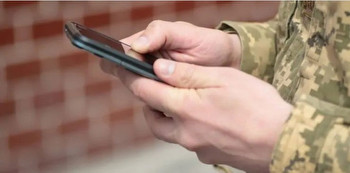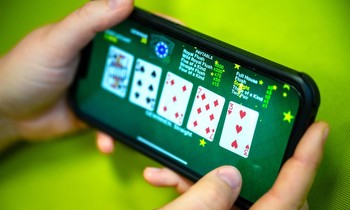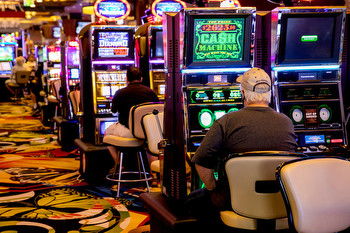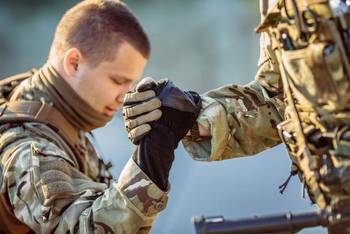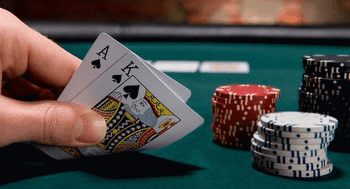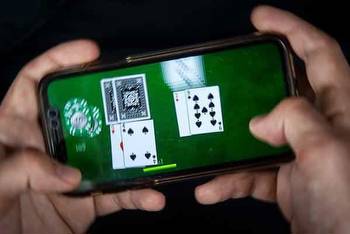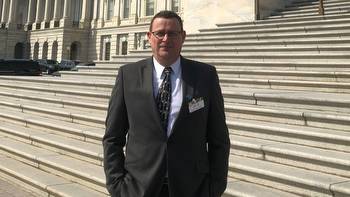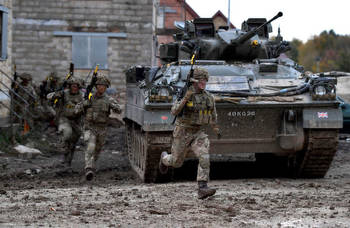Colorado Seminar Helps ROTC Students Tackle Problem Gambling
As dawn broke over the Rocky Mountains on Nov. 15, more than 150 ROTC members stood at attention in the shadow of the University of Colorado’s Folsom Field, preparing for their day. By the the time the sun breached the mountains, the cadets were seated in a classroom pondering questions about gambling.
A five-question survey that explored what a person knew about gambling — for example, whether slot machines, scratch tickets, bingo, 50/50 raffles, or watching an NBA game are considered gambling — was the first step in a new program through Kindbridge Research Institute to educate ROTC students about gambling addiction.
Dave Yeager, retired from the Army and recovering from gambling addiction, opened the session by asking, “What are common kinds of gambling?” The first answer offered was sports betting, followed by bingo, slots, blackjack, poker, and roulette.
Yeager then added scratch-off lottery tickets, the stock market, and gaming to the list. And while it might seem like video games are a far cry from gambling, Yeager pointed out that the “loot boxes” needed to get to the next level of a game make it exactly that.
The proliferation of legal sports betting across the U.S. since the Supreme Court overturned the Professional and Amateur Sports Protection Act in 2018 has brought with it plenty of collateral effects, from creating new jobs and cutting-edge technology to an increase in the number of those addicted to gambling. Through the Kindbridge Research Institute’s first-of-its-kind seminars, Yeager and problem and responsible gambling expert Brianne Doura-Schawohl are aiming to educate the next generation of military leaders so they can identify potential unhealthy behaviors and enjoy this form of entertainment without risk.
Susan Sheridan Tucker, the National Council on Problem Gambling’s board president, called sports betting an ironic “silver lining” that has shone a light on gambling addiction and created an opportunity for states to fund better responsible and problem gambling initiatives. Colorado, which prior to the legalization of sports betting had little to no funding for problem gambling, is among the states that have added millions of dollars to fund initiatives.
The seminar was meant to give future leaders the tools to identify potential problem gambling behavior and ways to head it off. Yeager explained that those in the military may be particularly vulnerable to addiction due to loneliness, the high-stress environment, low pay for enlisted persons, the “warrior ethos,” and the mission-first focus of the armed services, among other reasons.
Hidden addiction
In the presentation, Yeager explained how gambling addiction is now considered a medically identifiable addiction with treatment services available — something that was lacking when he struggled with his own addiction in the early years of this century.
Gambling can increase serotonin and dopamine levels in the body. Serotonin affects everything from mood to sleep to digestion, while dopamine affects how humans feel pleasure. Hence, boosting levels of either or both, whether through drugs, alcohol, or gambling, can make a person feel happier or higher, he said.
“It’s called the hidden addiction because you can’t see it, you can’t smell it,” said Doura-Schawohl, who lobbies in statehouses and Congress for responsible and problem gambling funding. “In our culture, this is considered the most embarrassing addiction.”
Yeager shared some of his story about how he got addicted to gambling playing slot machines that are available at some U.S. military bases abroad. His addiction ultimately cost him his Army career, his first marriage, and multiple jobs — and drove him to attempt suicide more than once.
But last week, he was standing before this group of prospective military leaders, sharing his story.
“Being addicted to gambling can feel like there are two different people living in the same body,” he said. “One is living an obsession. One is living a normal life. Every day, I was going to a slot room to play. I was driven to do this. It doesn’t mean that these people don’t have morals or values.”
Role-playing reveals potential pathway for help
Doura-Schawohl said that there are more than 3,000 slot machines on American military bases outside of the U.S., and that the military “makes $100 million off people like you.” The slot rooms on bases, according to Yeager, are available to anyone with access to the base, including military spouses and civilian employees.
As part of the training session, Yeager asked one of his pupils to portray an addicted gambler who had borrowed money from a friend, while another played the role of a concerned friend. The exercise was designed to be argumentative, a little confusing, and educational.
Many students got into the activity with raised voices and plenty of hand gestures. When it was over, Yeager asked if anyone found it “difficult or uncomfortable,” and the room filled with murmured “yeses.”
Discomfort aside, Yeager said talking or leaving the door open for someone with a gambling addiction to ask for help is critical.
“Let the person know you know there is something going on,” Yeager told the class. “Ask, ‘Is everything OK?’ If they are ready to talk, they’ll start talking. Most of the time they won’t, but you are planting a seed. … That uncomfortable conversation that you don’t want to have is the most important thing you can do.”









